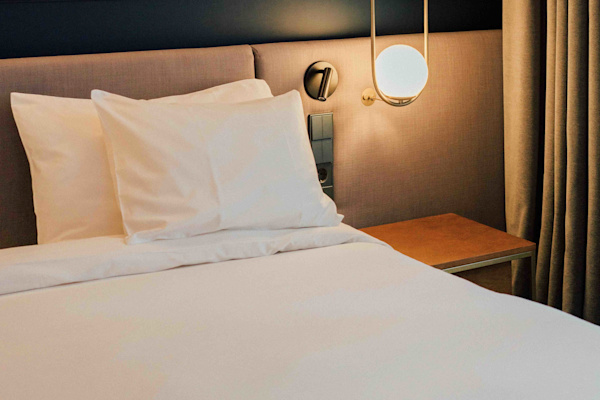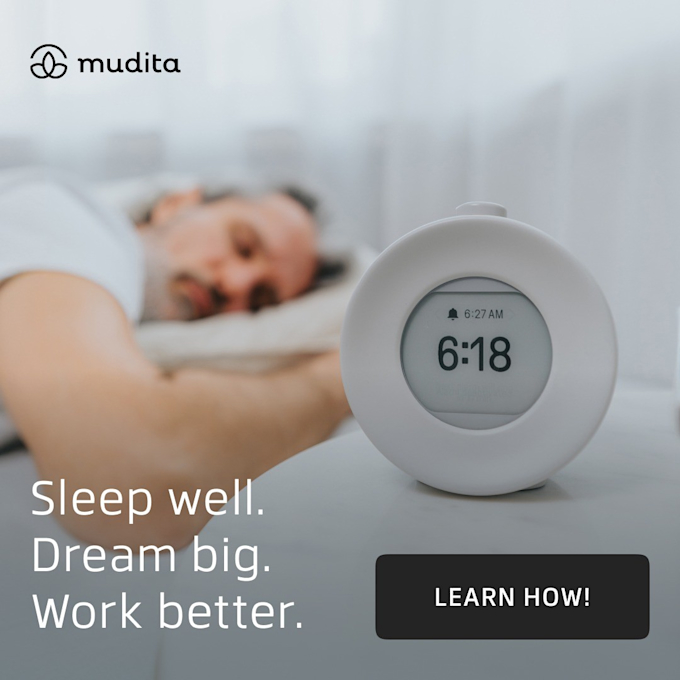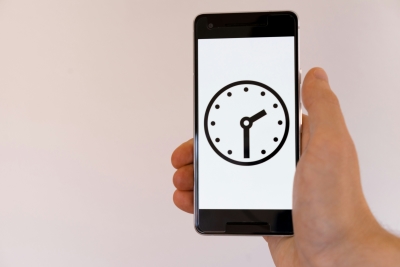
How Better Sleep Can Build Emotional Resilience
Sleep and mental toughness
In a world where burnout is the new normal and approximately 40% of us toss and turn through the night, resilience should not be thought of as only a buzzword. It should be considered a survival skill. [1][2]
Yup! You read that correctly! Sleep is not only essential for restoring daily functioning, it also plays a critical role in emotional regulation.
However, what if we told you that the mental toughness we're all chasing might be hiding under your pillow.
We’ve previously written about how sleep affects our overall mental health, however, this time, we’re diving deeper into sleep and emotional resilience.
We all know that emotional stress can significantly impact sleep quality. If we’re stressed or anxious, we may find it difficult to fall asleep. Conversely, poor sleep can exacerbate emotional stress and affect emotional processing.
Let’s get into the science behind this.
Snooze and You Win
A 2022 groundbreaking study, published in Sleep Medicine Reviews, brought together the brainpower from the United Arab Emirates University (UAEU), Zayed University, and the University of Birmingham, and discovered that there is a very clear relationship between sleep (both duration and quality) and psychological resilience among healthy individuals.[3]
After sifting through 68 studies involving a staggering 131,000 people, researchers have concluded that quality shut-eye isn't just nice to have—it's the secret sauce of mental fortitude.

Dream Big with Mudita Harmony
Ian Grey from UAEU's Department of Cognitive Sciences explains it very clearly, “A lot of sleep research indicates that poor sleep typically results in a reduced capacity to effectively regulate negative emotions. Impaired regulation can lead to negative emotions spiraling and the person feeling overwhelmed and less able to cope.” [4]
To put it bluntly: Skimp on sleep, and you're setting yourself up for an emotional rollercoaster.
It turns out, those precious hours of slumber are when our brains hit the reset button on our emotional circuitry, priming us to face whatever curveballs life throws our way.
Your Brain on Sleep Deprivation (It’s not Pretty)
Picture this: your amygdala—the brain's drama queen—goes into overdrive when you're sleep-deprived. Suddenly, minor annoyances feel like major catastrophes, and your ability to see things from someone else's perspective? That goes out the window. It's literally like trying to navigate a minefield while wearing a blindfold.
But wait, there's more. That sleep debt doesn't just make you cranky; it turns your decision-making skills to mush. Problem-solving becomes a Herculean task, and impulse control? Let's just say late-night online shopping sprees become a real danger.
If you want to read more about how sleep deprivation affects other aspects of our health and overall well-being check out our article on the subject:
READ: Effects of chronic sleep deprivation on health & well-being
REM Sleep: That’s Where the Magic Happens
Here's where it gets really interesting. During REM sleep, your brain isn't just resting, it's working hard at renewing and rebuilding, like it’s hosting an all-night innovation party. That’s right! During REM sleep, the brain pieces together seemingly unrelated bits of information, potentially birthing the next big idea that could revolutionize your work or solve that nagging personal problem.
A well-rested brain is also your personal cheerleader, more likely to focus on the silver linings rather than the storm clouds. This means that when things don’t go your way (which is bound to happen), a well-rested brain will look at the positive side of the situation and not dwell on the negative.
And, let’s face it, these days, when the world often feels like it's going off the rails, this optimism isn't just nice, it's actually necessary to keep our sanity.

Workplace Resilience
Let's shift our focus to workplace resilience programs. You’ve probably encountered the usual suspects, such as sessions filled with buzzwords like ‘hustle culture’ and ‘grit.’ While these initiatives have good intentions, they often miss the mark, particularly for employees already struggling with work stress and long hours. It's akin to decorating a house without first ensuring it has a solid foundation.
Here's a more practical approach: What if companies prioritized fostering a healthy work-life balance instead of adding another motivational seminar to the calendar? Encouraging employees to stick to regular work hours and avoid burning the candle at both ends is a simple, yet effective way to boost overall well-being. After all, resilience isn't built by pushing employees to their limits but by giving them the space to recharge.
Moreover, for those who may still struggle with sleep despite these efforts, employers could go a step further by offering to cover the costs of Cognitive Behavioral Therapy for Insomnia (CBT-I). This isn't just about counting sheep; CBT-I combines mental strategies with practical habit changes, empowering night owls to become true sleep champions.
By investing in their employees' sleep and well-being, companies are not only enhancing productivity but also building a resilient workforce ready to tackle challenges head-on.
Final Thoughts
The message about quality sleep is clear: in the race for resilience, sleep isn't just a pit stop, it's the fuel.
By prioritizing sleep, we're not just improving our health; we're supercharging our ability to roll with the punches and come out swinging.
So, the next time you're tempted to pull an all-nighter or binge-watch just one more episode, remember: your future resilient self is begging you to hit the hay.
In a world that never sleeps, maybe the true rebels are the ones who dare to snooze.
Related stories

What Are the 6 Pillars of Self-Esteem?
Discover the 6 pillars of self-esteem for a balanced life. Learn how Mudita's products support personal growth, mindfulness, and purposeful living.

Desk-scaping: The art of decluttering your workspace
A decluttered space eliminates distractions and does not disrupt the flow of your work.

Behind the screen: How much screen time is too much for adults
How does excessive screen time impact adults? Learn how to embrace digital minimalism for a healthier, more balanced life.
If you'd like to receive the best stories from our blog, keep up to date with our progress and get notified about our product releases and special discounts.